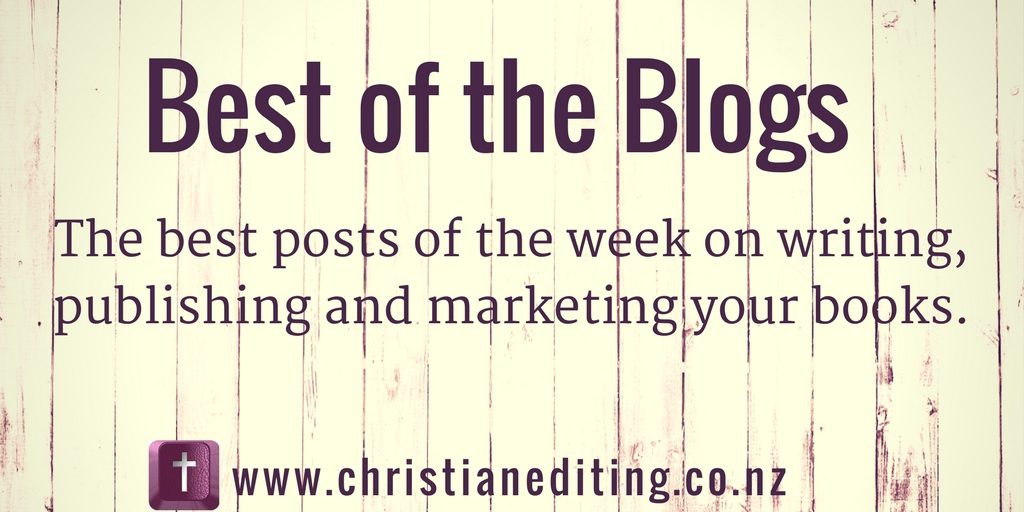Best of the blogs: the best posts I’ve read this week on writing, editing, publishing, and marketing. Okay, mostly on writing.
Writing
Writing Addictive Fiction
What is addictive fiction? It’s fiction that keeps the reader turning the page. In this guest post at Write to Done, Victoria Mixon shares The 3 Secrets to Addictive Fiction.
Writing Conflict
Is your conflict true conflict that’s necessary for the story, or is it just a temporary obstacle, an unimportant delaying tactic you’ve included because you know you need conflict in fiction? Janice Hardy visits Romance University to answer this question in 3 Ways to Tell if Your Conflict is Just a Delay Tactic.
http://romanceuniversity.org/2017/09/29/3-ways-to-tell-if-your-conflict-is-just-a-delay-tactic/
Writing Scenes
Orly Konig visits Fiction University to share tips on Using Seasons (not seasoning) to Deepen a Scene. I love the idea of considering the season as part of the setting. Seasons tell us something about location – is Christmas in summer or winter? Seasons can also be used to reflect characterisation—does the character call it fall or autumn?
Writing Subtext
KM Weiland offers 4 Ways to Mine Your Characters’ Subtext. Great subtext, to me, is the mark of a great novel. It’s when I can read a scene and feel I know something about the characters before they acknowledge it for themselves. Yet the author didn’t tell me. The author showed me, through great subtext.
I’d add one thing to KM Weiland’s advice: don’t worry about adding subtext on your first draft (although you might find it comes out naturally). Use your first draft to nail down your plot and characters, then consider where you could add subtext (or remove telling) in your second and subsequent drafts.
Writer Productivity
I don’t know about you, but I see a lot of “productivity hacks” online (although none of them have yet told me how to get more hours in the day). In particular, many writers find it difficult to carve out time for writing, especially those who have other roles: wife, mother, employee, homeschooler, church volunteer … (ringing any bells?).
Joanna Davidson Politano visited the American Christian Fiction Writers blog to offer Help for the Time-Starved Writer. She says:
The truth is, you don’t need more time to write—you need a deeper reserve of creativity and strength and ideas that can only be found in intimate relationship with the Father.
Not the productivity hack you were expecting, right?
Marketing
Finally, Nate Hoffelder at The Digital Reader give his tips on writing a regular link post (like this best of the blogs post). Author Blogging 102: A Practical Guide to Developing Your Weekly or Monthly Link Post covers both non-fiction and fiction link posts.
That’s a great idea: I hear a lot of fiction authors saying they don’t know what to blog about, so a weekly or monthly link post is a great idea. Fiction authors can link to book reviews or author interviews in their genre, or to posts that might interest their readers.
His best tip? Read all the posts first. It’s something I do, even with the posts I share on Twitter. You don’t want to unknowingly share something you fundamentally disagree with without some kind of comment.


